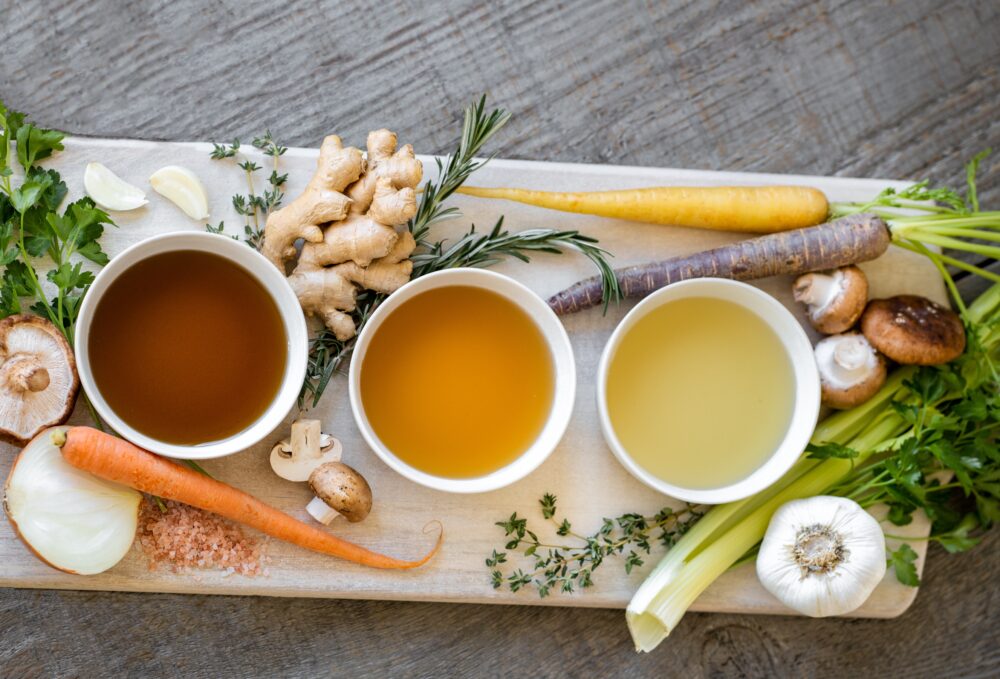Bone Broth is a Nutritional Gold Mine

Bone broth nutrition is one of its biggest selling points. Allegedly, bone broth is a low-calorie, high-protein food that provides significant minerals such as calcium, phosphorus, potassium, and magnesium.
The earliest study to mention bone broth is from 1937, which looked at the nutritional value of both bone and vegetable broths. The researchers concluded that while neither was a very good source of nutrition, the broths found to provide the highest mineral content were the ones that contained the most vegetables.
Far more recently, in 2021, a study in the journal Medicina analyzed bone broth and found that it was not an especially good source of essential minerals, especially in comparison to recommended daily intakes.
While marketers tout bone broth for its mineral content, it’s the vegetables generally used in the cooking process — not the bones — that may actually be providing many of these helpful nutrients.
An average cup of bone broth contains 0–19 mg of calcium and 6–9 grams of protein. That may be all well and good, but this protein content is not terribly impressive when compared to some other sources of these nutrients.
- 1 cup cooked collard greens = 268 mg calcium
- 1 cup navy beans (boiled) = 126 mg calcium
- 1 bunch cooked broccoli raab = 515 mg calcium
- 1 cup baked beans = 14 grams protein
- 1 cup cooked quinoa = 8 grams protein
- 3 Tbsp of hemp seeds = 10 grams protein
Bone broth also doesn’t include the fiber that comes along with whole, plant-based sources of protein.
So yes, bone broth does provide some calcium, protein, and other nutrients. But so do many, many other whole foods.
A cup of cooked collards contains at least ten times as much calcium as a cup of bone broth. A cup of baked beans contains nearly twice as much protein as a cup of bone broth. And most Americans may be getting too much protein (at least from animal sources), anyway.
( Excerpt taken from the Food Revolution Network)
